Getting started with free cycles
What are BigFile cycles?
The BigFile runs on a network of nodes owned and operated by a growing community of independent node providers (NPs) distributed across the globe. NPs spend money for running nodes, e.g. they purchase hardware and require electricity and network bandwidth. The BigFile compensates NPs on a monthly basis by minting and distributing rewards in the form of BIG tokens.
To make BigFile sustainable, cubes are required to pay for the resources they consume, e.g. storage and compute. Resource consumption is not paid in BIG tokens but cycles. It’s typically the cube’s developer who charges the cube with cycles. As the cube is used, its cycles balance is continuously reduced. Eventually, the cube needs to be “topped up” with more cycles. The default way to get cycles is to convert BIG tokens to cycles. When doing so, the protocol burns the BIG tokens.
Why are cycles different from BIG tokens?
While the value of an BIG token is volatile, cycles are not. They are pegged to XDR, a basket of fiat currencies. This has the benefit that resource consumption, e.g. smart contract executions, on BigFile has a somewhat stable price.
Cycles are measured in very large numbers, such as billions and trillions. When you talk about cycle transfers and replenishment, you will usually operate with trillions of cycles.
This guide explains how to use cycles faucet to acquire your first amount of 10T free cycles that could be used to deploy your dapps on the mainnet.
Prerequisites
- Install BigFile SDK following this guide.
Step 1: Get a coupon.
First, you will need to navigate to https://faucet.dfinity.org. You will need to put in a request for cycles on the BigFile dev official Discord server. You can click on the REQUEST CYCLES button on the faucet page to join the Discord server.
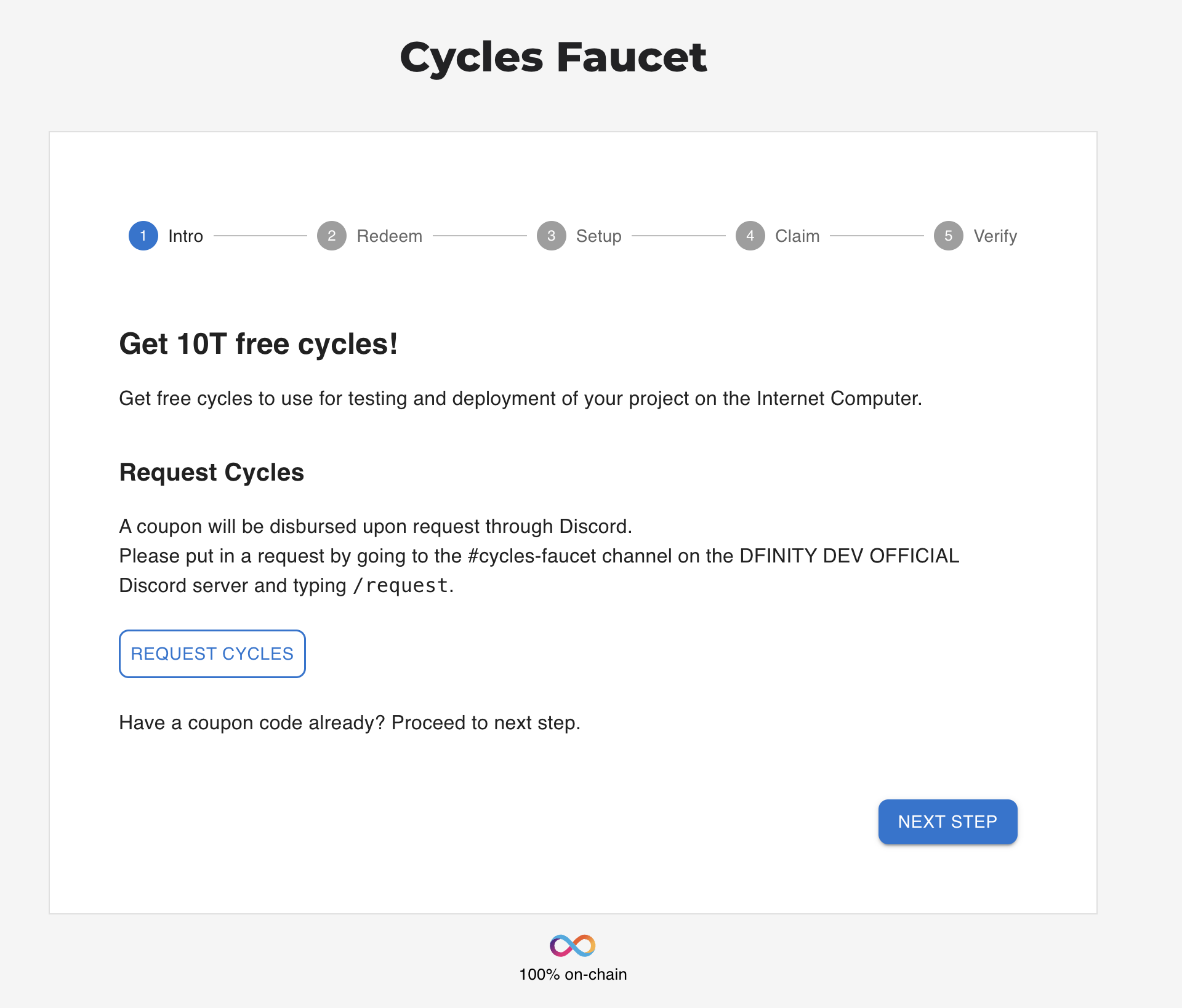
Step 2: Once inside the Discord server, navigate into the #cycles-faucet channel.
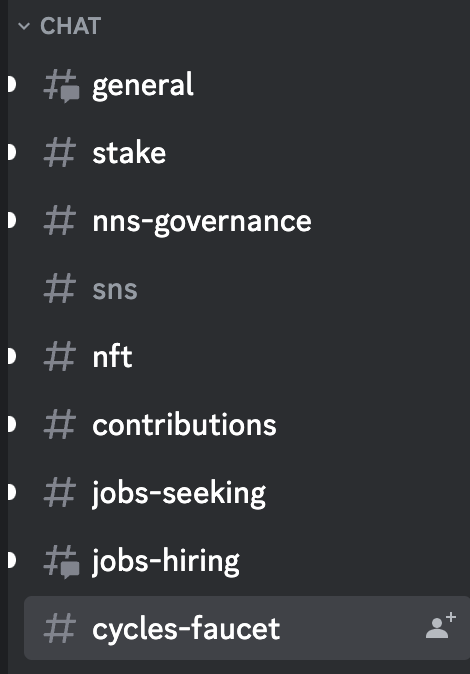
Step 3: In this channel, execute the following slash command:
/request
Step 4: After you send this message, you are prompted to fill out a survey.
Step 5: Once completed, our team will review your submission. If accepted, the faucet bot will send you a private message with a coupon code.
Please ensure that your Discord settings are set to allow direct messages from other users. If you do not have this setting enabled, you will not receive a direct message from the faucet bot.
Step 6: Head back to the https://faucet.dfinity.org webpage.
Now, click NEXT STEP to continue.
Step 7: Redeem the coupon.
Now that you have a coupon code, enter your coupon code within the faucet UI.
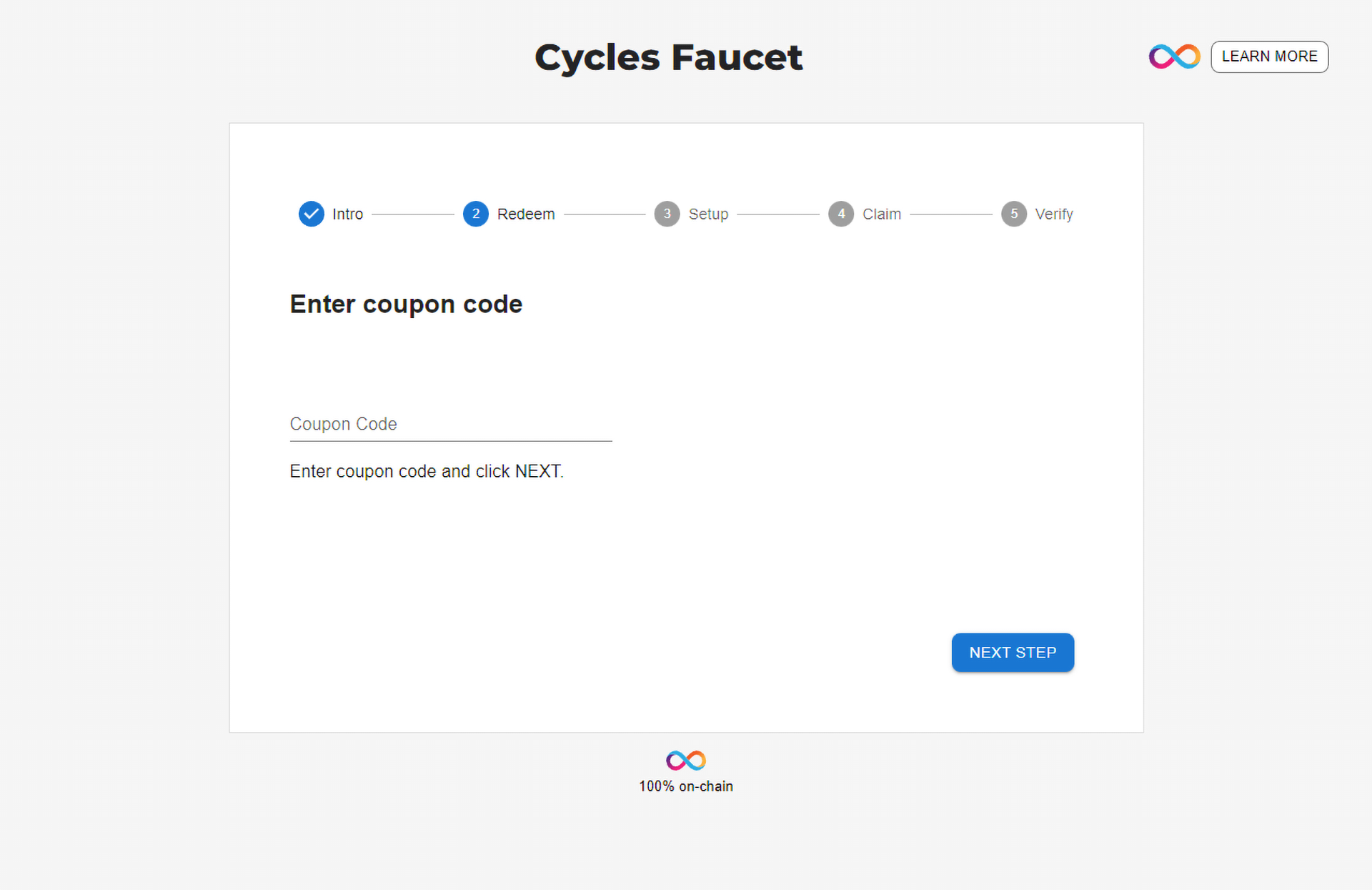
Click NEXT STEP to continue.
Step 8: Setup the BIG SDK.
Next, confirm your computer has dfx installed. Run this command to check the version of dfx on your computer:
dfx --version
If your dfx version is below 0.12.0, please run this command:
dfx upgrade
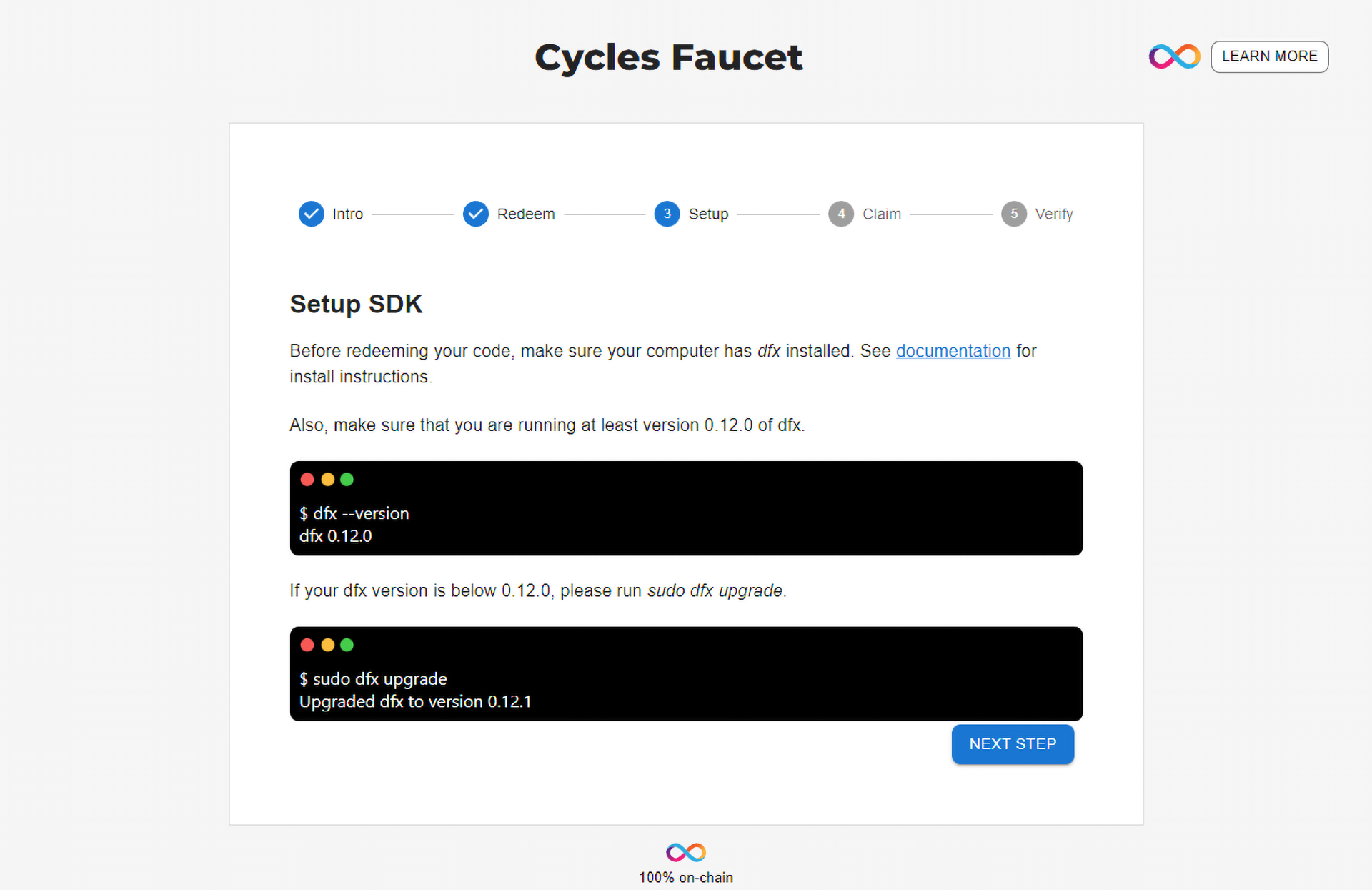
Click NEXT STEP to continue.
Step 9: Create a new identity to claim your cycles.
To create a new identity, use the command:
dfx identity new MyNewIdentity
Your identity's seed phrase will be returned. Be sure to save this in a secure location.
Then, set this identity to be used by default:
dfx identity use MyNewIdentity
Step 10: Now, claim your cycles.
This workflow utilizes the cycles ledger feature. If you'd like to use the cycles wallet instead, view the cycles wallet documentation.
To use the cycles ledger, you will need dfx version 0.19.0, and you will need to set the following environmental variable:
DFX_CYCLES_LEDGER_SUPPORT_ENABLE=1
You will need to claim your free cycles by running this command:
dfx cycles --network ic redeem-faucet-coupon <your-coupon-code>
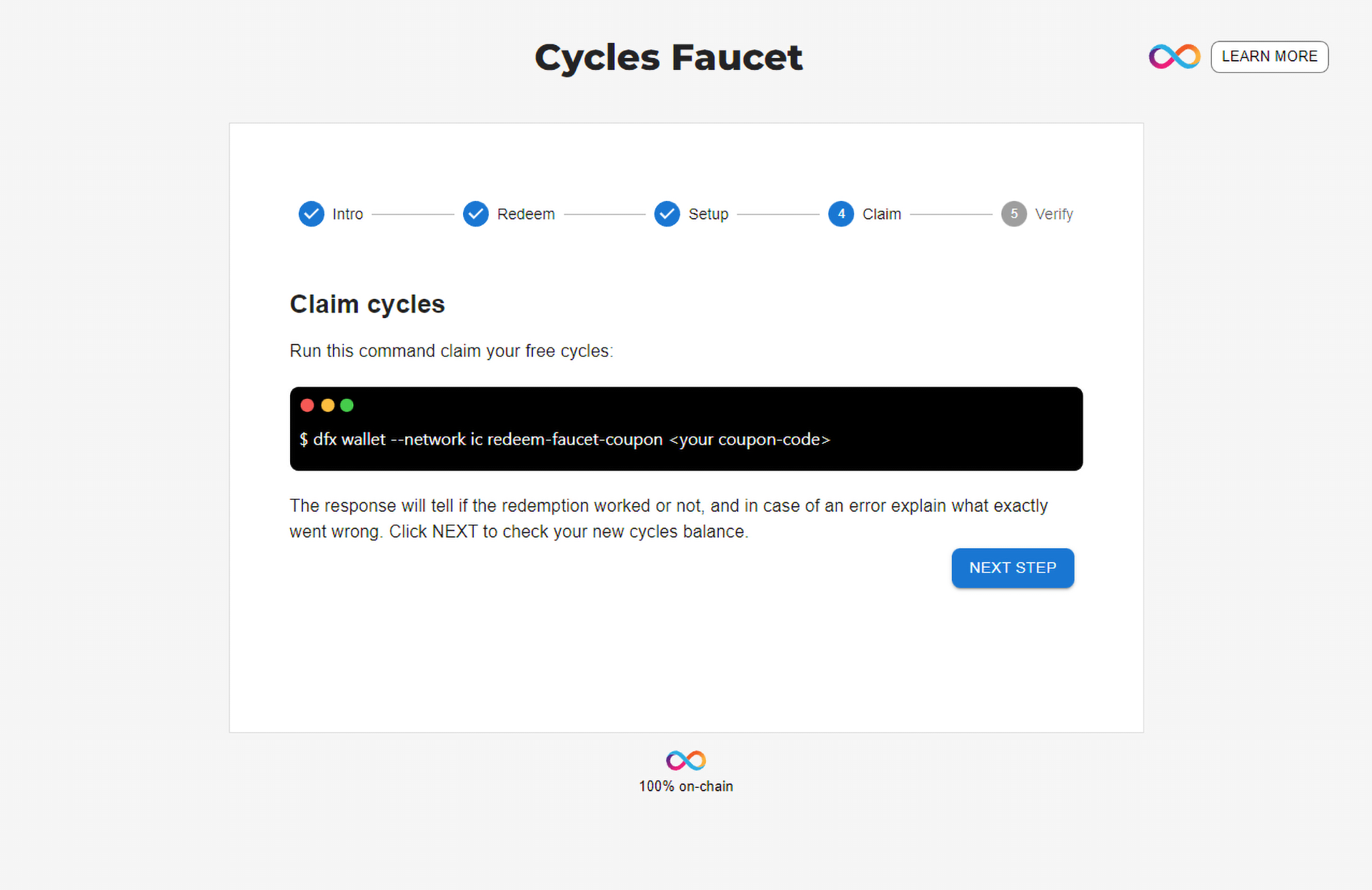
Click NEXT STEP to continue.
Step 11: Verify your balance
The last step is to verify the coupon was redeemed correctly by checking your balance using the dfx cycles --network ic balance command:
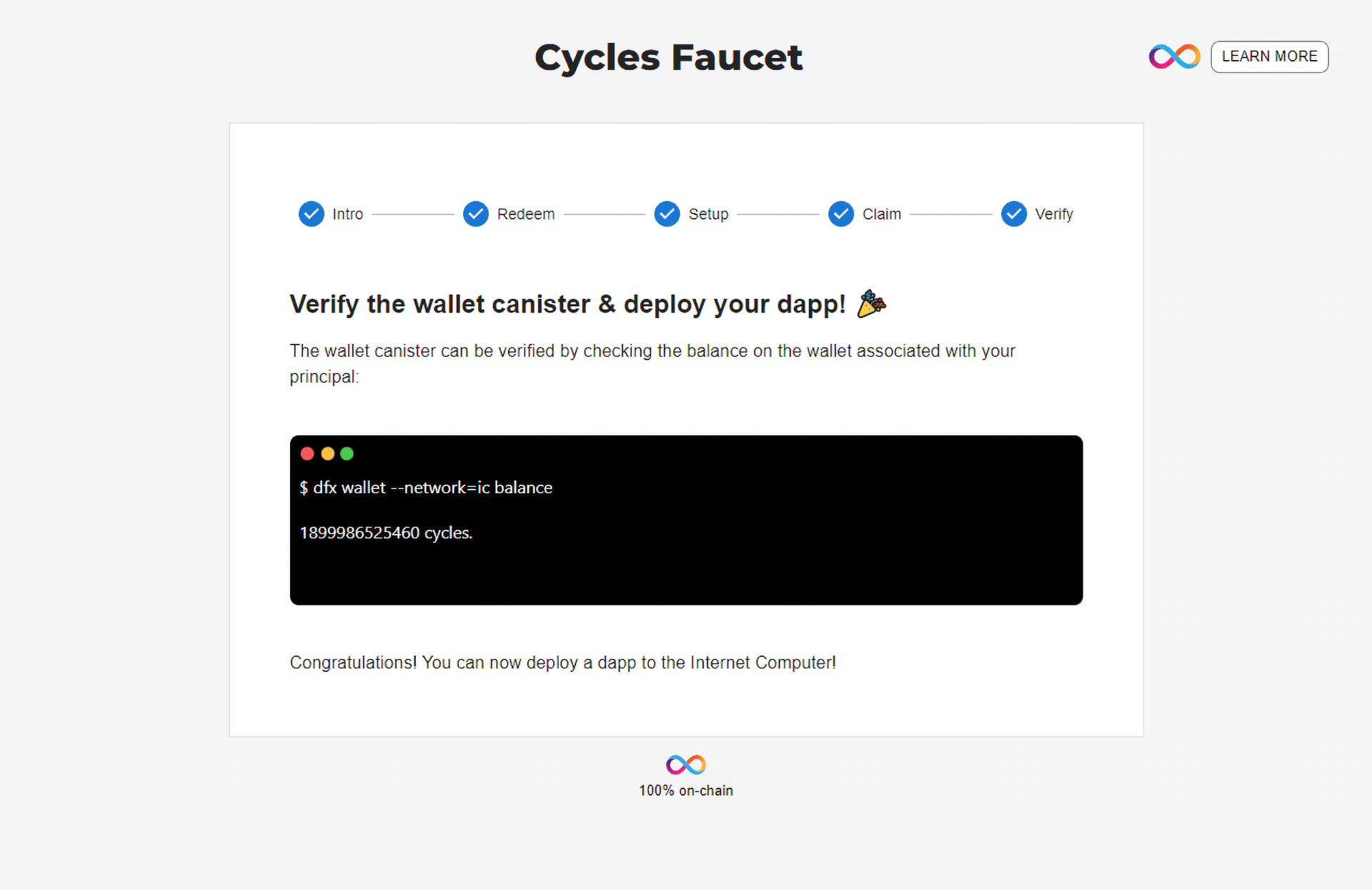
Conclusion
Now you are ready to deploy a canister on the mainnet!
Resources
To further explore cycle management please see the following articles: